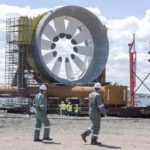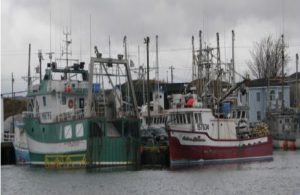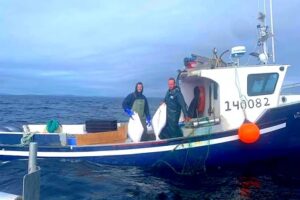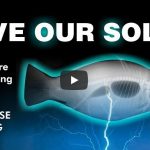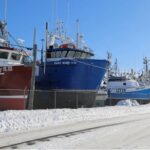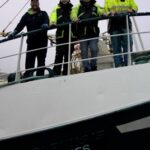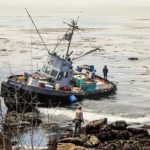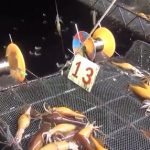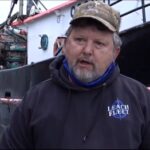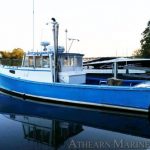Tag Archives: Ministry For Primary Industries
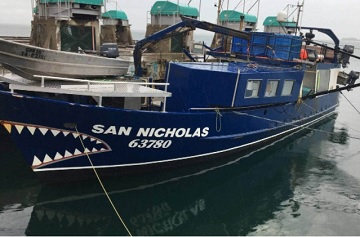
New Zealand fines Southland fishing company $40,000 – Boat and nets forfeited
Cando Fishing Limited and Campbell David McManaway, 59, were sentenced in the Invercargill District Court today on multiple charges under the Fisheries Act they earlier pleaded guilty to following a successful prosecution by Ministry for Primary Industries. “We believe this aspect of the sentence sends a strong message to all commercial fishers. For the Quota management system to be effective in managing sustainability, all fishing activity needs to be captured correctly or the system won’t account for that activity creating a real threat to the resource through overfishing or incorrect reporting,” says MPI regional manager fisheries compliance, Garreth Jay. As a result of the fisheries convictions the fishing vessel, F/V San Nicholas was forfeited to the Crown along with 32 set nets. >click to read< 07:59
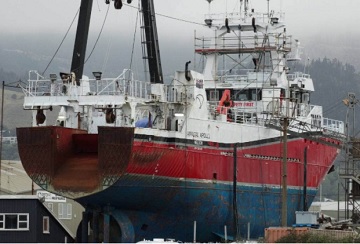
Talley’s subsidiary found guilty of bottom trawling in conservation area
Convictions for bottom trawling in a protected area of the Tasman Sea should send a strong message to the fishing industry, says the Ministry for Primary Industries. Judge David Ruth in the Nelson District Court found Talley’s subsidiary Amaltal Fishing Co breached the conditions of its high seas fishing permit when its vessel, Amaltal Apollo, trawled in a protected area. Both Amaltal Fishing Co and the then-master of the vessel, Charles Shuttleworth, were found guilty on 14 charges. A date has not yet been set for sentencing. >click to read< 10:02
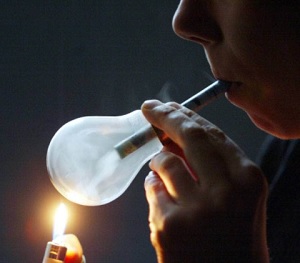
Drugs on deck: Meth abuse hampers use of fisheries observers
Methamphetamine abuse aboard the commercial fishing fleet is preventing officials from placing observers on high-risk vessels. Reports released reveal hard drug use and the erratic behaviour of crew has led to observers feeling unsafe. And in some cases, the Ministry for Primary Industries have refused to put staff on board. And a survey commissioned by Maritime NZ reveals 30 per cent of fishers knew someone who used drugs while on deck. It follows the death of 26-year-old Steffan Stewart, who died after becoming trapped in a piece of machinery aboard a factory trawler. He was found with methamphetamine in his system likely consumed at sea, a Transport Accident Investigation Commission review found. >click to read< 11:37

Fishing charges dismissed after ‘regulatory storm’,
Campbell McManaway steamed out of Bluff Harbour headed for Dusky Sound to fish for kina, unaware of the regulatory storm awaiting upon return. The fisherman found himself in a three-and-a-half year, $350,000 dispute with the Ministry for Primary Industries, after processing kina at sea in Fiordland in June 2018. In the midst of the legal dispute, McManaway was going into debt, paying up to $40,000 a month in legal fees and thinking about leaving the industry. >click to read< 09:03

Electronic Monitoring in New Zealand: “not excusable” some skippers are fishing in protected areas
It comes as data obtained under the Official Information Act shows the Ministry for Primary Industries (MPI) is investigating a set netting vessel in the South Island. It alleges it fished in both a dolphin-protected area and a marine reserve. “It’s not excusable at all,” chief executive Dr Jeremy Helson says. “We will work with MPI and the companies to make sure skippers and crew understand their responsibilities.” In December last year, new electronic monitoring rules came into place for 860 commercial fishing vessels, meaning the movements of vessels were tracked by the Ministry for Primary Industries. >click to read< 09:16 – Commercial fishing vessel offences 10-times higher after Ministry for Primary Industries starts tracking location information – >click to read<
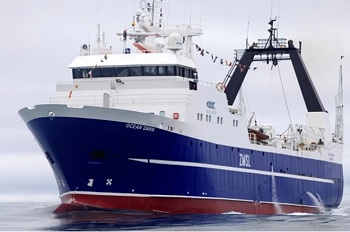
Sealord ordered to forfeit $24 million vessel
The company was also ordered to pay a $24,000 fine in Nelson District Court for trawling in a Benthic Protected Area. Sealord vessel master Bolen Terric Goomes was fined $7500 and first mate Thomas Adrian Pope was fined $5000, MPI reports. They were convicted on one representative charge each, relating to five trawls for the company, three trawls for the skipper and two trawls for the first mate. In addition to the vessel Ocean Dawn being forfeit, the proceeds from the sale of the entire catch taken in the five offending trawls is also forfeit which amounts to $1,12294.13. >click to read< 08:05
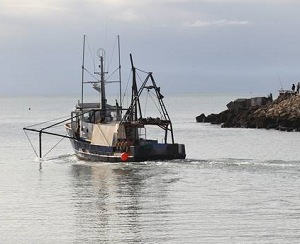
Comment: New Zealand’s fishing industry under pressure
New Zealand’s fishing industry punches well above its weight internationally – but we can do better, writes National’s spokesman for Fisheries Ian McKelvie.,, Currently our fishing industry is under pressure as their fishing methods, environmental record and the sustainability of their catch are coming under criticism from a sector of our community, and factions within Government who don’t always use fact-based material to back up their criticism. The Hector’s and Māui Dolphins Threat Management Review is a major concern for the industry at the moment. >click to read< 19:04
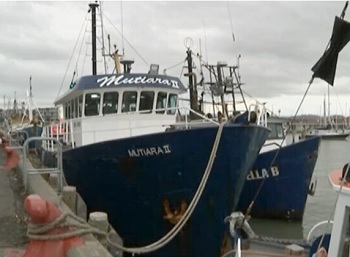
Commercial fishing company becomes first to be banned in New Zealand
In what’s believed to be a first in New Zealand, a commercial company has been banned from fishing. The company run by the Hawke’s Bay D’Esposito family has copped a three-year ban and an $80,000 fine after failing to report more than 200 kilograms of crayfish. The Nimrod 1 is a Napier crayfishing vessel now implicated in fraud. The crew didn’t know, but the Ministry for Primary Industries (MPI) began watching them, and the crayfish they were catching for the Hawkes Bay Seafood’s Group, back in September 2014. >click to read<10:44
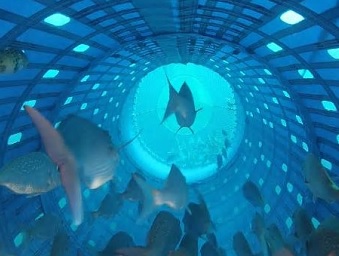
New Zealand approves innovative trawl technology
Fisheries New Zealand on Monday approved the use of an innovative trawl technology for commercial operations in some deep–water fisheries, called the Precision Seafood Harvesting Modular Harvest System (MHS). The MHS is the first innovative trawl technology to be approved under amendments to the commercial fishing regulations introduced last year, Stuart Anderson, director of fisheries management at Fisheries New Zealand, said in a statement. The regulations were amended to support innovations in trawl gear that provide opportunities to achieve better quality of catch, add value across the sector, and ensure the sustainable use of fisheries resources, Anderson said. >click to read<09:44
Labour to pause rollout of fish monitoring system
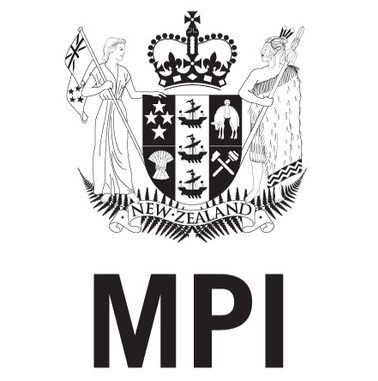 The fishing industry has got the pause it wanted to a system of electronic monitoring and reporting of fishing catches. Fisheries Minister Stuart Nash has instructed Ministry for Primary Industries officials to look at options for slowing down the implementation of IEMRS (Integrated Electronic Monitoring and Reporting System) on commercial fishing vessels.,, All commercial fishers were going to be required to use Geospatial Position Reporting and e-logbooks by April 1, 2018, and cameras by October 1, 2018. click here to read the story 09:01
The fishing industry has got the pause it wanted to a system of electronic monitoring and reporting of fishing catches. Fisheries Minister Stuart Nash has instructed Ministry for Primary Industries officials to look at options for slowing down the implementation of IEMRS (Integrated Electronic Monitoring and Reporting System) on commercial fishing vessels.,, All commercial fishers were going to be required to use Geospatial Position Reporting and e-logbooks by April 1, 2018, and cameras by October 1, 2018. click here to read the story 09:01
Leaked fishing camera report ‘sound’, top advisor said
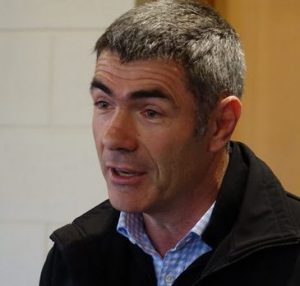 The report, carried out by the Ministry for Primary Industries (MPI), was leaked to Greenpeace in June. It raised doubts about whether camera technology on fishing boats would be much use in court as evidence of illegal fishing. MPI later called the report “misleading” and poor quality, and Mr Guy said scientists had binned it. But in emails released to the Green Party under the Official Information Act, a top science advisor described the report as “robust and sound”. The camera technology will be rolled out on all boats from October 2018. The minister’s spokesperson said they could be used to spot some fishing offences, and would have a strong deterrent effect. click here to read the story 11:09
The report, carried out by the Ministry for Primary Industries (MPI), was leaked to Greenpeace in June. It raised doubts about whether camera technology on fishing boats would be much use in court as evidence of illegal fishing. MPI later called the report “misleading” and poor quality, and Mr Guy said scientists had binned it. But in emails released to the Green Party under the Official Information Act, a top science advisor described the report as “robust and sound”. The camera technology will be rolled out on all boats from October 2018. The minister’s spokesperson said they could be used to spot some fishing offences, and would have a strong deterrent effect. click here to read the story 11:09
Catch Shares – New Zealand’s fisheries quota management system: on an undeserved pedestal
 In popular imagination, New Zealand’s fisheries management system is a globally recognised story of sustainability, reflecting a “clean and green” environmental ethos. Indeed, New Zealand’s fisheries have been ranked among the best managed in the world – an accolade based on the early and wholehearted adoption of a Quota Management System (QMS). This perception is echoed in a recently published article, but we take issue with the methodology and its conclusions. Claims that New Zealand’s QMS is an unmitigated success simply do not match the facts. click here to read the story 18:32
In popular imagination, New Zealand’s fisheries management system is a globally recognised story of sustainability, reflecting a “clean and green” environmental ethos. Indeed, New Zealand’s fisheries have been ranked among the best managed in the world – an accolade based on the early and wholehearted adoption of a Quota Management System (QMS). This perception is echoed in a recently published article, but we take issue with the methodology and its conclusions. Claims that New Zealand’s QMS is an unmitigated success simply do not match the facts. click here to read the story 18:32
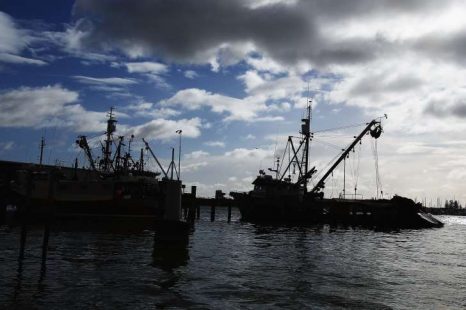
Cameras on boats ‘an invasion of privacy’
A group of fishermen could be heading to court to fight a plan to use cameras and GPS trackers to monitor commercial trawlers. Consultation by the Ministry for Primary Industries on the first phase of the rollout of the new technology closed yesterday. Some fishermen claim the cost and time involved could put many people out of business. New regulations, which start to apply next year, involve installing cameras and GPS technology on 1200 fishing boats in Southland. A group of 70 fishermen, mainly from Southland, have each pledged $1000 towards a legal fight to stop the move, with a decision due this week on whether to head to court. Bluff fisherman Chris Black said they were being treated worse than criminals. click here to read the story 15:44
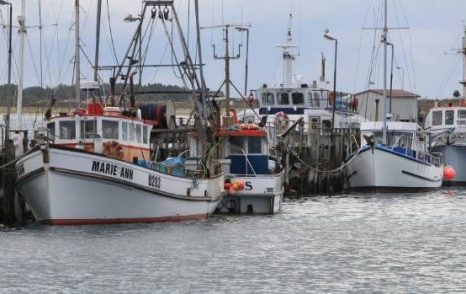
New Zealand: MPI agree to meet Southland fishermen over electronic monitoring regulations
Ministry for Primary Industries staff have agreed to front up to Southland fishermen who have questions about new monitoring and reporting regulations. From October 6, new measures will be rolled in to ensure that all commercial fishing boats are fitted with both GPS equipment and cameras, to improve monitoring of catch levels and to help prevent any illegal activity. More than 100 fishermen, from throughout Southland, met at the Ascot Park Hotel in Invercargill last week to discuss the implications of the ministry’s new Integrated Electronic Monitoring and Reporting System (IEMRS). Many in the commercial fishing industry were frustrated at the fact the new rules had been decided on without proper consultation or thought to their consequences. click here to read the story 09:43
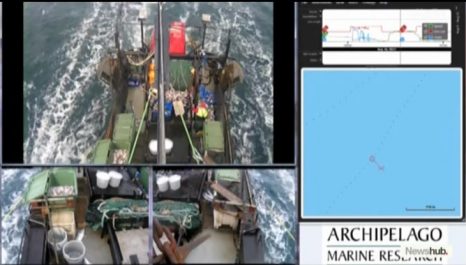
New Zealand – New digital fishing rules could cost thousands
All commercial fishing operators will have to invest thousands to install cameras and tracking devices on their boats, under new rules announced by the Ministry for Primary Industries (MPI). The push towards electronic monitoring of the industry follows concerns about widespread illegal practices, including the dumping of fish and misreporting of catch. The rules will not only apply for large trawl vessel, but all boats – even small ones – that are registered as being commercial. The cost for the tracking systems, cameras and maintenance of the gear could cost as much as $20,000 per operator. The regulator also says where evidence of illegal activity is uncovered, it will be used for prosecutions. click here to read the story 08:16
Chinese vessels fined $825,000 and deregistered for tuna offences off NZ coast
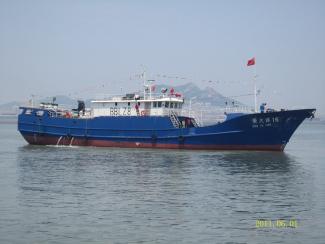 Chinese authorities have deregistered and fined a Chinese commercial fishing company about $825,000 for misreporting blue fin tuna catches and fishing without a licence adjacent to New Zealand waters. Offending by the vessels, the Da Yang 15 and Da Yang 16, was detected during Operation Zodiac, a joint Ministry for Primary Industries and New Zealand Defence Force high seas patrol in July last year.,,, Under international law, the state to which vessels are flagged is ultimately responsible for taking action against any of its vessels that violate laws. Chinese authorities have now concluded their investigation and found that the two vessels were not only unlicensed but that they misreported over 100 tonnes of high value southern blue fin tuna as another lower value species. click here to read the story 09:17
Chinese authorities have deregistered and fined a Chinese commercial fishing company about $825,000 for misreporting blue fin tuna catches and fishing without a licence adjacent to New Zealand waters. Offending by the vessels, the Da Yang 15 and Da Yang 16, was detected during Operation Zodiac, a joint Ministry for Primary Industries and New Zealand Defence Force high seas patrol in July last year.,,, Under international law, the state to which vessels are flagged is ultimately responsible for taking action against any of its vessels that violate laws. Chinese authorities have now concluded their investigation and found that the two vessels were not only unlicensed but that they misreported over 100 tonnes of high value southern blue fin tuna as another lower value species. click here to read the story 09:17
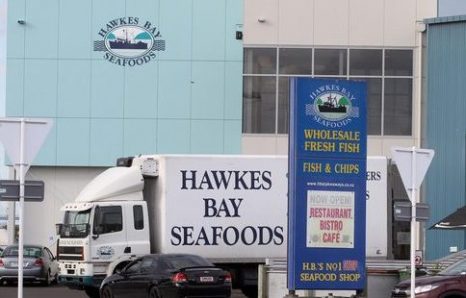
Hawke’s Bay Seafoods on trial over alleged under-reporting of catches
Dozens of fishing catch returns and other documents are alleged to have been falsified by Napier company Hawke’s Bay Seafoods, a judge has been told at the start of an expected four-month trial in the District Court at Wellington. The trial started before Judge Bill Hastings yesterday, with Ministry for Primary Industries prosecutor Stephanie Bishop saying there was deliberate and wide-reaching under-reporting of catches over about two years. Ms Bishop alleged offences were orchestrated “from the top” and the necessary skippers’ collusion was gained by cash payments and continued employment. Catches totalling up to 63 tonnes of bluenose and 3.5 tonnes of trumpeter were involved, motivated by a lack of catch entitlement and prospects of export market advantages. Charges involve mainly two types of offence, with false statements on catch-return records and selling fish not properly reported to MPI. click here to read the story 14:49
Greenpeace Criticizes Contracting Onboard Monitoring Cameras and Analysis to Trident
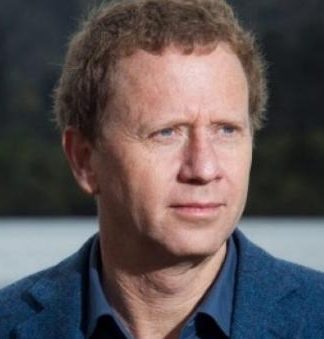 Should a commercial fishing company be made responsible for monitoring what goes on board the commercial fishing vessels? Greenpeace leader Russel Norman says, it is like “the fox guarding the henhouses”. Greenpeace has criticized Ministry for Primary Industries for rolling out cameras on fishing vessel which is supplied as well as monitored by Trident for the fishing industry. The company is owned by Sanford and thirteen other seafood and fishing companies in New Zealand. The news was confirmed by Nathan Guy, the minister for MPI. So it is clear that indeed the fishing industry is responsible for analyzing the video surveillance that comes from its own trawlers and reports any suspicious behavior to the regulators. Executive Director of Greenpeace New Zealand, Russel Norman says that makes things worse as the government has given out the contract and analyzing task to the industry with Nathan Guy and Prime Minister John Key defending it. link 11:17
Should a commercial fishing company be made responsible for monitoring what goes on board the commercial fishing vessels? Greenpeace leader Russel Norman says, it is like “the fox guarding the henhouses”. Greenpeace has criticized Ministry for Primary Industries for rolling out cameras on fishing vessel which is supplied as well as monitored by Trident for the fishing industry. The company is owned by Sanford and thirteen other seafood and fishing companies in New Zealand. The news was confirmed by Nathan Guy, the minister for MPI. So it is clear that indeed the fishing industry is responsible for analyzing the video surveillance that comes from its own trawlers and reports any suspicious behavior to the regulators. Executive Director of Greenpeace New Zealand, Russel Norman says that makes things worse as the government has given out the contract and analyzing task to the industry with Nathan Guy and Prime Minister John Key defending it. link 11:17
Fisherman pleads guilty to 39 albatross deaths
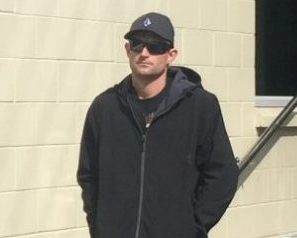 A commercial fishing boat skipper who caused the death of 39 albatrosses refused to use bird-scaring devices because he had “nothing but f…… trouble with the things”, a court has been told. Daniel Joseph Smyth, 37, admitted in the Greymouth District Court on Tuesday to being the master of a vessel that failed to comply with seabird mitigation measures by ignoring instructions to use a streamer line while fishing with surface longlines. The Ministry for Primary Industries’ (MPI) legal counsel William Jennings said Smyth was fishing for southern bluefin tuna off the West Coast in April and failed to use a streamer line, a mandatory device designed to scare birds away from baited hooks. Read the story here 14:03
A commercial fishing boat skipper who caused the death of 39 albatrosses refused to use bird-scaring devices because he had “nothing but f…… trouble with the things”, a court has been told. Daniel Joseph Smyth, 37, admitted in the Greymouth District Court on Tuesday to being the master of a vessel that failed to comply with seabird mitigation measures by ignoring instructions to use a streamer line while fishing with surface longlines. The Ministry for Primary Industries’ (MPI) legal counsel William Jennings said Smyth was fishing for southern bluefin tuna off the West Coast in April and failed to use a streamer line, a mandatory device designed to scare birds away from baited hooks. Read the story here 14:03
Marlborough Sounds Blue Cod fishing ban has been branded “insane” by fishermen
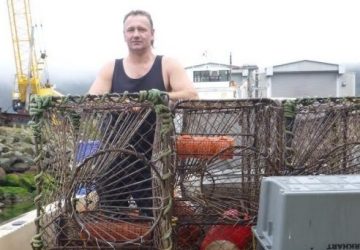 A ban on commercial blue cod fishing in the Marlborough Sounds has been branded “insane” by fishermen who will be out of work for the next four months. The Ministry for Primary Industries closed the Sounds to commercial blue cod fishers for the first time on Thursday. The season closure will run until December 20. Fisherman Kelly Aldridge said the ban meant he could not fish in an area which comprised 85 per cent of his fishing ground, in the outer Sounds. It was effectively putting him out of work until Christmas. “My boat’s not big enough to travel further afield,” he said. Commercial fishermen could normally catch blue cod in the Sounds all year, while the area was closed to recreational fishers from September 1 to December 20. Read the story here 11:06
A ban on commercial blue cod fishing in the Marlborough Sounds has been branded “insane” by fishermen who will be out of work for the next four months. The Ministry for Primary Industries closed the Sounds to commercial blue cod fishers for the first time on Thursday. The season closure will run until December 20. Fisherman Kelly Aldridge said the ban meant he could not fish in an area which comprised 85 per cent of his fishing ground, in the outer Sounds. It was effectively putting him out of work until Christmas. “My boat’s not big enough to travel further afield,” he said. Commercial fishermen could normally catch blue cod in the Sounds all year, while the area was closed to recreational fishers from September 1 to December 20. Read the story here 11:06
New Zealand Fisherman faces prosecution for deaths of albatrosses during observed fishing trip
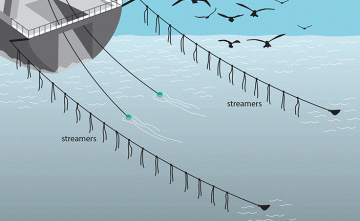 A commercial fisherman is to be prosecuted and faces a fine of up to $100,000 after dozens of albatross were killed during a fishing trip. The unnamed fisherman is being prosecuted by the Ministry For Primary Industries, which is now set to introduce additional measures to help prevent more seabird deaths as a result of the incident. A statement released by MPI today said the birds were killed when the commercial fisherman failed to use a tori line – a compulsory device used to scare birds away from baited hooks – while fishing for southern bluefin tuna off the West Coast of New Zealand. “The skipper faces a maximum fine of $100,000 in relation to an offence under the Fisheries (Commercial Fishing) Regulations and forfeiture of the vessel used in the operation.” The incident was reported by an MPI observer who was on board the vessel at the time. Read the rest here 09:47
A commercial fisherman is to be prosecuted and faces a fine of up to $100,000 after dozens of albatross were killed during a fishing trip. The unnamed fisherman is being prosecuted by the Ministry For Primary Industries, which is now set to introduce additional measures to help prevent more seabird deaths as a result of the incident. A statement released by MPI today said the birds were killed when the commercial fisherman failed to use a tori line – a compulsory device used to scare birds away from baited hooks – while fishing for southern bluefin tuna off the West Coast of New Zealand. “The skipper faces a maximum fine of $100,000 in relation to an offence under the Fisheries (Commercial Fishing) Regulations and forfeiture of the vessel used in the operation.” The incident was reported by an MPI observer who was on board the vessel at the time. Read the rest here 09:47


































